Innovations in petrochemistry, or Tandem of TAIF with universities of Tatarstan
What projects of scientists are implemented at the enterprises of petrochemical complex of the republic
The volume of production of the petrochemical complex of Tatarstan in the first quarter of this year increased by 12% and amounted to 368 billion rubles compared to the same period last year. Companies achieve such growth including through close cooperation with universities of the republic. The cooperation of practice and science has found application in TAIF Group. The holding, realizing the importance of work for the future, actively cooperates with universities of Tatarstan. Both sides benefit from such tandem: enterprises get new developments, students — practice and full immersion in the future profession. Read more about the cooperation of TAIF and universities of the Republic of Tatarstan in the material of Realnoe Vremya.
Studies of Kazan Federal University for the competitiveness of enterprises
One of the decisive factors of economic development in modern conditions is the integration of science, education and industrial enterprises. The latter feels the greatest need for highly qualified and initiative workers, and universities are interested in ensuring that educational programmes meeting the requirements of future employers. Integration with universities allows enterprises to participate in the formation and equipment of the training programme, to bring their technological standards in the specialization, to get acquainted with future graduates during the internship and participation in projects on their subjects.
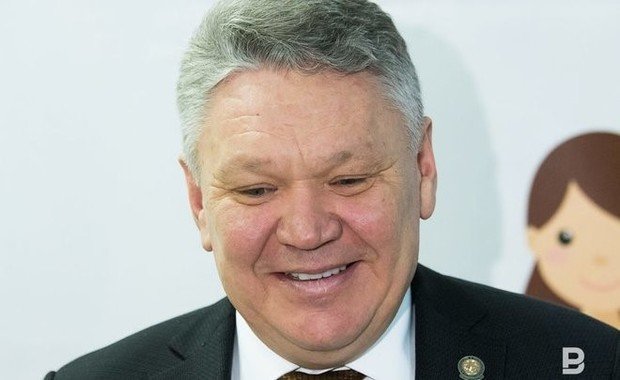
In Tatarstan, the cooperation between industry and universities has brought significant results. Deputy Prime Minister of the Republic of Tatarstan — Minister of Education and Science of the Republic of Tatarstan Rafis Burganov said that during his work in the scientific and production association Kazankompressormash it was established cooperation with the basic departments of the Kazan National Research Technological University (KNRTU). ''The plant had a strong council of young scientists and specialists who cooperated with the university. Based on my personal experience, I can say that such interaction is the right form of work. During the training, students are introduced to the production, and former graduates are given the opportunity to enrich with new scientific developments,'' said Rafis Burganov.
The economic situation in the country and the policy of import substitution pushes universities and enterprises towards each other. Following this trend, the oldest university of Kazan – the Kazan Federal University — from year to year steps up cooperation with industrial enterprises. According to rector of the university Ilshat Gafurov, the research of the university has become more practice-oriented and therefore in demand by companies. ''Our research will be interesting only if it will contribute to improving the competitiveness of enterprises. This is especially important today, when the task is not only import substitution, but also the production of goods that, replacing imports, could themselves participate in a competitive environment, to be implemented outside our country,'' Ilshat Gafurov said.
Developments of KFU ousted from Nizhnekamsneftekhim the catalysts produced by Shell and BASF
The rector cited TAIF as a good example of working with industrial enterprises. Together with the group, the university developed catalysts, which are now used by Nizhnekamskneftekhim PJSC. In addition to the introduction of industrial technologies, TAIF employees participate in state examination of students. In the performance of contractual works, enterprises select the necessary specialists in the KFU, and the site of Nizhnekamskneftekhim has long become the place of internship for university students.
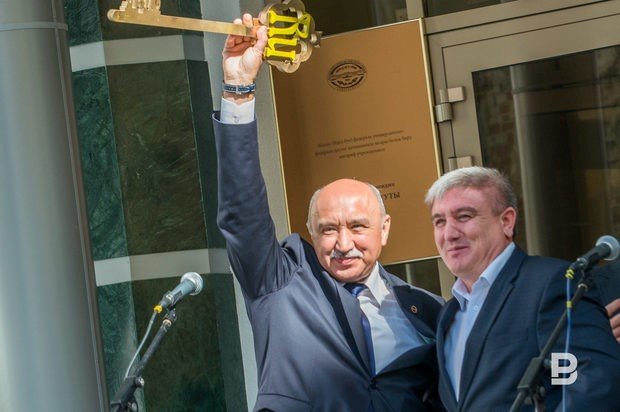
It is worth noting the role of TAIF in the construction of the laboratory building of the Alexander Butlerov Institute of Chemistry at the Kazan (Volga) Federal University. The seven-storey building was established in 2015 by the order of President of Tatarstan Rustam Minnikhanov with the support of Director General of TAIF PSC Albert Shigabutdinov with participation of Kazanorgsintez PJSC. The laboratory building houses two dozen large laboratories that allow to conduct research on organic chemistry, supramolecular chemistry, petrochemistry, as well as in the field of fine chemical technologies and catalysis.
The closest cooperation of the KFU and enterprises of TAIF Group has been achieved in the field of catalysis. In the early 2000s, the laboratory of adsorptive and catalytic processes was established at the university, the main customer of which was Nizhnekamskneftekhim. For the implementation of the company's projects under the decree of the Government of the Russian Federation No. 218 the KFU won two grants totaling 600 million rubles.
Within the first grant, the production of highly effective ferric potassium catalyst was organized. The development allowed to displace from the practice of Nizhnekamskneftekhim the ferric potassium catalyst of Shell and BASF brands. Now it is produced in the amount of 300 tonnes per year.
The second grant was given for the development of the catalyst used in the production of isobutylene and isoamylene. ''Within the second grant, it was organized the joint venture, Catalysis Prom PLC. Nizhnekamskneftekhim invested in the project about 700 million rubles,'' said Deputy Director of the Alexander Butlerov Institute of Chemistry Alexander Lamberov to Realnoe Vremya. Four years ago, the production was launched in the presence of Tatarstan President Rustam Minnikhanov and former Minister of Education Andrey Fursenko.
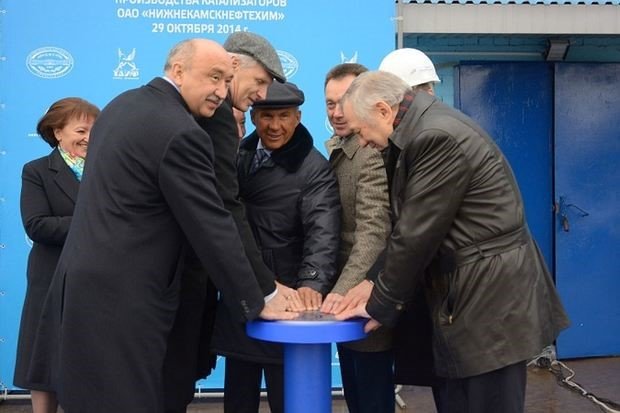
''This year we have won the third grant in the amount of 160 million rubles, we will implement it together with SCTB Katalizator JSC from Novosibirsk. With them, we develop catalysts for ethylbenzene dehydrogenation into styrene, which will also be in demand at Nizhnekamskneftekhim. This year, we will offer Nizhnekamsk about five or six catalysts of domestic production,'' Alexander Lamberov added.
The cooperation with the dehydration laboratory of Nizhnekamskneftekhim, which is headed by Renat Gilmullin, is of great importance for KFU chemists. Mutually beneficial relations have been established with almost all the directors of the plants. After the development and introduction of the catalyst every 5 years the staff of the university are required to carry out the modernization of production, to create a more efficient catalytic system.
This year, experimental and industrial tests are to be carried out at Kazanorgsintez. The plant has already made a pilot unit for the project of purification of ethane-ethylene fraction from acetylene. If the tests are successful, a commercial batch of the catalyst will be supplied to the enterprise.
Topics of students' graduation works are connected with TAIF enterprises
The cooperation of the KFU with TAIF is reflected not only in the development of innovative technologies, but also in the educational process. ''Many of the nine master's programmes of our institute are applied in nature, so the problems of master's theses, postgraduate works is associated with industrial enterprises, including TAIF Group. The subjects of scientific works are discussed with the representatives of TAIF. In addition to research staff, undergraduates, students, graduate students are also engaged in real science, and many dissertation topics are of applied importance and are associated with the interests of the oil industry,'' said Vladimir Galkin, director of the Institute of Chemistry at KFU.
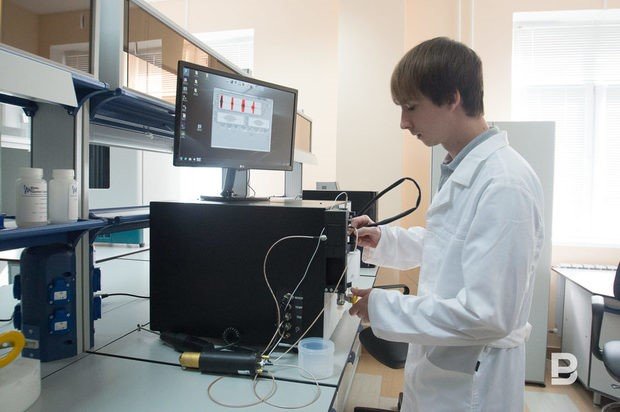
Employees of enterprises of TAIF Group participate in the formulation of problems of theses and diplomas, in the review of scientific works. TAIF provides sites at its enterprises for the development of catalysts and research. Before cooperation with TAIF Group, few students went to work at enterprises. Basically, the institute prepared staff for research, but now they are in demand in both production and scientific fields.
Directors of KOS plants participate in the state commissions of KNRTU
TAIF Group has also established fruitful cooperation with the Kazan National Research Technological University (KNRTU). More than half of the university graduates work in the petrochemical companies of the holding. ''TAIF is an important partner for us. The serious market situation does not allow the investment company to spend time working with non-professionals. Cooperation with TAIF imposes a great responsibility on the university, which allows it to evolve,'' said rector of KNRTU Sergey Yushko in an interview with Realnoe Vremya.
The university works on a regular basis with the personnel department of Nizhnekamskneftekhim PJSC and Kazanorgsintez PJSC. In this way, it tracks staff needs and reflects them in the formation of national educational standards. Each year, the admission quotas are adjusted to meet the requirements of industrial enterprises.
The educational institution has trained staff for Kazanorgsintez since the construction of the enterprise and have greatly succeeded in this: in 2017 the enterprise employed 99 graduates of the university. ''Kazan is a student city and fully covers our need for highly qualified personnel. It makes no sense for the company to look for employees in other republics,'' said head of the personnel department at Kazanorgsintez PJSC Elena Tyurina.
The students of KNRTU from the third year of education have practical training in the departments of Kazanorgsintez, get familiar with the workflows. In 2017, more than 500 students of the Kazan Petrochemical College and Kazan National Research and Technical University had internship at Kazanorgsintez.
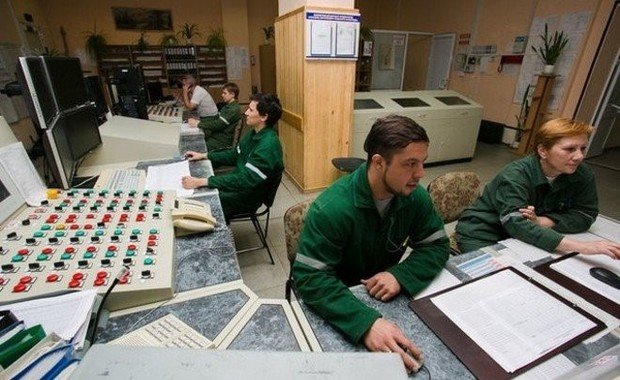
Human factor plays a significant role in the organization of internship in the workplace, namely the attitude of the heads of the internship from the university. So, the Oil and Petrochemistry Department at KNRTU treat the students' internship with increased attention. The university staff accompany students in the shops, show production, talk with the heads of the practice of the enterprise and monitor the progress of the practice throughout the period.
The only thing, there is an unpleasant after-taste from the duration of the student practical training. ''The university has changed the academic programmes, and the training length has decreased. Now the graduate training lasts about two or three weeks, although previously students collected material for the diploma for up to six months. Of course, students do not only graduate practical training, but also production one, and we try to send them to the same department so that they have time to study in more detail the complex production processes and deepen their knowledge,'' said Natalia Vakatova, head of the department of personnel training at Kazanorgsintez PJSC.
Highly qualified employees of the enterprise participate in the educational process of students of various departments of KNRTU. The directors of the plants and chief specialists of KOS are part of the final state certification commissions of KNRTU to give an objective assessment of graduates. Every year, the university sends a request to Director General of Kazanorgsintez Farid Minigulov to send these specialists to participate in the final state certification commissions.
The interest of Nizhnekamskneftekhim in biodegradable substances
As for research activities, the KNRTU for many years has worked in cooperation with Nizhnekamskneftekhim to improve the technology of obtaining propylene oxide and styrene. The Department of General Chemical Technology have samples of all reactors, on which they conducted research to obtain propylene oxide and styrene. Professor, Doctor of Chemical Sciences, Head of Department of General Chemical Technology at KNRTU Kharlampy Kharlampidi and his colleagues propose to receive propylene oxide through cumene hydroperoxide.
''Phenol and acetone are obtained from cumene hydroperoxide through acid decomposition of hydroperoxide. But the same hydroperoxide can serve as a good epoxidising agent. It interacts with propylene and produces propylene oxide,'' the scientist explained. The production of propylene oxide is highly developed in the United States: the share of production is 36% of the total market. In Russia, Nizhnekamskneftekhim is the only enterprise for the production of propylene oxide, so the share of Russian propylene oxide in the world market is 1%, while even in Thailand the production of this compound reaches 6%.
The interest in propylene oxide on the part of industrialists is clear: the substance has biodegradable properties. It is possible to obtain propylene glycol, propylene carbonate, isopropanolamine, polyoxypropylene-polyol, propylene sulfide. It can also be used as an intermediate in the production of polyurethanes, polyester resins. To obtain such products, Nizhnekamskneftekhim should increase the production of propylene oxide from 75,000 tonnes to 140,000 tonnes per year.
Implementing the Montreal Protocol
Associate Professor of Refrigeration Engineering and Technology Department at KNRTU Sergey Vizgalov told Realnoe Vremya that for Kazanorgsintez PJSC the university has developed a project of transition of turbo-cooling machines, used in chemical production, from liquid refrigerants to ozone-friendly refrigerants. The task was also to be fulfilled in connection with the Montreal Protocol on Substances that Deplete the Ozone Layer, which Russia signed back in 1987.
The project of the university is designed to improve the efficiency of refrigeration units and to save cooling productivity. Sergey Vizgalov and his colleagues offered three options of replacement for modern equipment of domestic manufacturers. ''We always try to either reduce power consumption or keep it at the same level with an increase in performance by 5-10%. While maintaining the same capacity, it is possible to decrease the power consumption within the range of 5-10%,'' said Sergey Vizgalov. The KNRTU completed the project of transition of turbo-cooling machines in 2017.
Improvement of power supply of Kazanorgsintez from KNRTU-KAI
TAIF cooperates with KNRTU-KAI in the field of electricity supply. The university won the competition announced by Kazanorgsintez and prepared the technical enquiry for the improvement of the power supply system of the enterprise. The electrical engineering systems of KOS were designed on the hardware and software complex RTDS.
With the help of the complex it was possible not only to design the model, but also to enter it into the computer and through the amplifiers to connect relay protection devices. The thorough analysis of the state of power supply of Kazanorgsintez allowed to find opportunities for improving power supply, to solve the problem of choosing equipment and algorithms for relay protection devices for technical complexes.
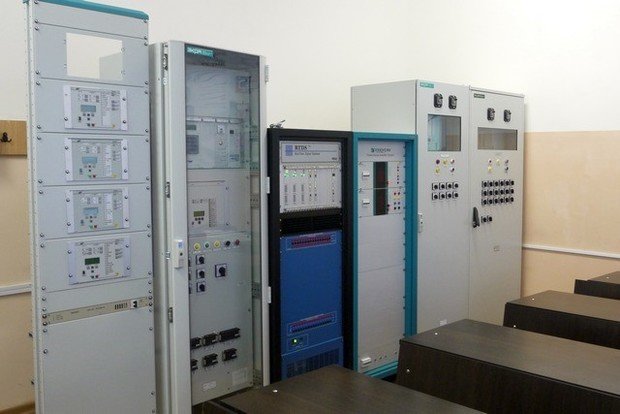
RTDS can prepare the calculation of power supply systems for 0,2 seconds. ''We simulate the system of KOS workshop, set a fault, for example, a short circuit, the calculator recalculates everything, and the relay protection device of the terminal disconnects the part of the power supply system where the accident occurred. We can see how long the shutdown took,'' explained Andrey Ferenets, head of the department of electrical equipment, director of the Institute of Automation and Electronic Instrument Making at KNRTU-KAI, to Realnoe Vremya.
TAIF invests 10 million rubles in the Endowment Fund
In addition to research projects, TAIF Group participates in the formation of the Endowment Fund of KNRTU-KAI. The Endowment Fund is formed through donations of graduates and partners of the university. The funds received from the benefactors are retained, and the income received from the management of the target capital is used by KNRTU-KAI for purposes designated by the benefactors and the financial plan of the fund. The target capital is transferred to the management company, which has the necessary licenses and professional experience. TAIF-Invest is such company.
Over the existence of the fund, it has been collected more than 20 million rubles. TAIF Group invested 10 million rubles in the target capital — it is the largest partner of the university. The fund receives private donations from 100 to 100,000 rubles. At the moment, the creation of the world's only interactive museum based on the first supersonic passenger aircraft Tu-144 is partially financed from the income from the management of the target capital.
The cooperation of TAIF Group and KNRTU-KAI is not limited only to participation in the Endowment Fund. The Board of Trustees of the university, along with members of the government of the republic and more than 30 representatives of the top management of large regional enterprises include Director General of TAIF PSC, graduate of KAI Albert Shigabutdinov and head of TAIF-NK PSC Rushan Shamgunov. ''The Board of Trustees of the university is aimed at promoting engineering specialties, fruitful cooperation between the industry and the university, support of university projects. At the moment, special attention is paid to the German-Russian Institute of Advanced Technologies and the creation of the museum on the basis of Tu-144. In all these areas, the support of TAIF is tangible,'' rector of KNRTU-KAI Albert Gilmutdinov said.
Electromembrane module for plants of big energy
The Kazan State Power Engineering University successfully cooperates with TAIF Group in the field of training of specialists, professional retraining, advanced training and research. Thus, in 2018 employees of Kazanorgsintez PJSC will improve their skills in the power engineering university. TAIF employees participate in state examination commissions and defence of final qualifying works. In turn, students of the Kazan State Power Engineering University undergo educational internship and externship, including pregraduation extership at enterprises of TAIF Group. Last year, 88 students underwent internship.
''The effectiveness of internships depends on the place of internship, so the internship of students are held on the sites of future employment of graduates on the basis of contracts with enterprises. In 2017, 36 graduates of the power engineering university were employed at the enterprises of TAIF Group, which is 41% of the number of students who underwent the internship there,'' said rector of the Power Engineering University Edvard Abdullazyanov. ''The partnership between the university and employers contributes to strengthening the competitive advantages of the region as the centre of intellectual resources and human capital, development of innovative forms of entrepreneurship and strengthening the economy of the region.''
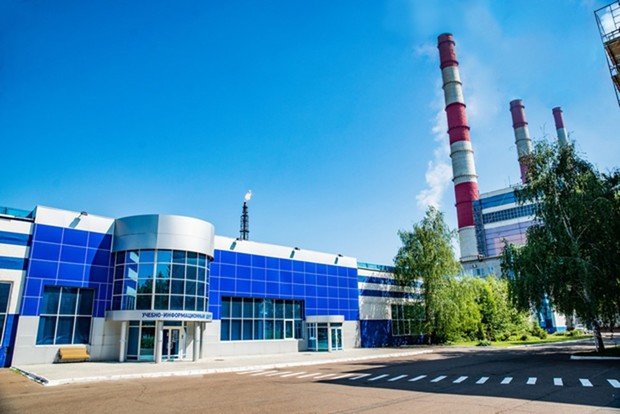
Research developments of the Kazan State Power Engineering University are also in demand by enterprises of TAIF. For the generating company TGC-16 JSC, the university developed the project of energy-efficient resource-saving water management systems, with the use of modular electromembrane devices at the companies of big energy. During the work, an experimental electromembrane unit was created. It creates the possibility of energy-efficient non-reagent processing of CHP liquid waste, inaccessible, impossible or unprofitable for processing by other methods.
The electromembrane unit allows to reduce the annual volume of discharged water. In addition to the economic effect, the company reduces the negative impact on the environment. The project of the Kazan State Power Engineering University will be implemented at the site of the branch of TGC-16 JSC — Nizhnekamsk CHPP (PTK-1) in the form of the operating test unit for utilization of saline mineralized wastewater. The study will provide resource and energy saving in the production of heat and electricity at power plants, as well as reduce the anthropogenic impact on the environment.
No intermediate link between the university and the enterprise
It would seem that the cooperation of industrial enterprises with universities is on a reliable track. However, the universities themselves do not always agree with this. There is still a misunderstanding in the relations with enterprises. In particular, industrial enterprises are not interested in financing the initial stage of scientific research. They are ready to invest only in ready-made technologies.
''We are told that they will buy a development when it is already made and if they like it. But we also cannot invest, relatively speaking, 100 million of our own money, but then they will buy the project for 10 million. We cannot work at a loss,'' said Vladimir Galkin. According to the director of the Institute of Chemistry at KFU, this is a common problem for the whole country. Another trouble he considers the lack of an intermediate link between the university and the enterprise — a sectoral research institute. ''A professor can create a fundamentally new invention, but we need intermediate links to bring it to a real technology. There is no such, so we create our own laboratories that bring the technology to the end. Industrial enterprises are reluctant to invest in R&D stage and often prefer to buy ready-made technologies abroad. But I think that the interest in domestic developments will increase with the imposition of sanctions,'' Vladimir Galkin added.
In any case, both sides benefit from close cooperation between industrial enterprises and universities of Tatarstan. Students and postgraduates working on projects of petrochemical companies get invaluable experience: they become highly qualified specialists, demanded by the leading enterprises of the petrochemical complex of Tatarstan. The results that TAIF Group has already received from cooperation with universities may indicate the creation of successful tandem. The achievement of synergies with the universities of Tatarstan allows TAIF enterprises to remain competitive and increase the production efficiency.